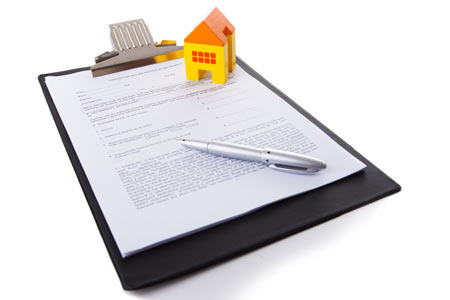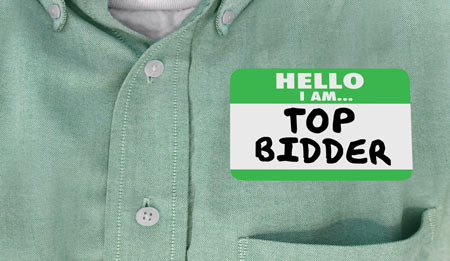Property auctions can be a great place to acquire your next home – if you know what you’re doing.
There are many things you must know and understand before diving into this high-stakes/high-stress process.
Here are some of my best tips. You’ll find one that’s is often overlooked — but not by you — after you read this.
1. Check Your Financial Capacity

This pre-auction tip involves going to your wealth manager and checking your financial capacity. It’s critical to know you actually have the money to buy that property before you even contemplate bidding for it.
If you need to apply for a mortgage to buy a property, it’s good you discuss your indicative borrowing capacity with a property finance consultant before auction day.
Lenders use higher interest rates when checking your borrowing capacity to stress test your ability to make repayments if the interest rates move upward. You will need written approval and deposit (around 10% of the purchase price) on the day of the auction.
2. Vet the Sale Contract

At the back-end of the shiny, new property being sold at auctions are legal issues. You want to sort these out before you go to the auction.
Prior to any property auction, you must get a copy of the contract and show it to your lawyer for review.
Your conveyancer can explain to you any possible risks that comes with buying the property you’re eyeing, and at the same time, give advice on how you can be protected from them.
He or she can also point out some bargaining chips you can use during the auction, from a legal standpoint, like longer settlement periods, reduced deposits and/or additional terms and conditions.
3. Make Sure You Have a Professional Building Report
An auction sale is legally binding. Therefore you must know about any potential issues with the home before the auction starts.
Too many people rely on their gut feel, which is incredibly dangerous. No matter how shiny or new the home seems, make sure you know what you are buying.
Unless you are a builder yourself, get a professional building report done for you. Without it you are buying half blindly or worse.
Find a qualified person to conduct a proper building inspection for you. This includes licensed builders, surveyors, and architects.
These professionals will know what to look for, such as damages or defects to the property that could pose a safety hazard later on. It’s not unusual for some home owners to make cosmetics improvements to their property in the hopes of covering up faults.
Your professional inspector will also make sure that the report you will receive meets the Australian Standard for building inspection (AS 4349.1).
4. Check More Than Just The House Condition

This next one is a favourite pre-auction tip of mine, and something that is often overlooked by many.
Prior to any auction, there is usually an open house where potential buyers can check out the property they are eyeing. All good.
However you should not stop there. If you’re thinking of buying an investment home at the next auction, don’t just check the home itself – stake out the neighbourhood as well.
Walk by at different times of the day. Gauge the noise levels, the light conditions and traffic volume. Real estate agents will always try and have the open homes at the best times of the day with the most light and quiet ambience. View the home at other times.
If you can, make an appointment to see the home at a different time of day. You may be surprised.
Another expert pre-auction tip is doing your online research. Go on the internet and look for real estate websites that feature the home you’re looking to buy as well as its neighbourhood.
You can also find out what other home owners are saying about the area. This way you’ll know what to expect before you head to the auction.
5. Register to Bid with Proper ID
Prior to the auction, you have to register with the selling agent and be given a bidder’s number. You can do this when you inspect the property, or on the day itself.
You need to provide an ID, a card or document issued by government or a financial institution showing your name and address, such as your driver’s licence or learner’s permit, vehicle registration paper or council rates notice.
Do not forget this on auction day!
6. Visit Auctions
Bidding is a skill that you can hone by attending property auctions. This
Don’t let the property auction for your dream home be the very first one you attend. Go and see 10, 20, or 30 auctions, and interact with real estate agents, buyers agents, and auctioneers.
You will pick up the language they use and even learn strategies that you can use by the time you bid on a property.
By experiencing what it’s like being in an auction room and seeing how property auctions play out, you will gain the confidence needed in successfully buying property at an auction.
7. Have a Bidding Limit and Stick To It!

One of the most crucial pre-auction tips of all is to prepare your bidding strategy before auction day.
Set a bidding limit so you don’t go overboard and become an emotional bidder. The history of auctions is littered with people who literally bid their families into financial ruin, because emotion got the better of them.
Most importantly, your limit must never exceed your borrowing capacity.
However, do not set it too low, hoping for that bargain. This just sets you up for regret when someone else snaps up your dream home at a price you could have afforded. There is nothing wrong with bidding at your borrowing limit if you love that home.
Another thing you should look out for is getting into a “Dutch auction”. This is when you try to outmanoeuvre another buyer by making “blind bids” even before the start of an auction.
The selling agent will usually ask you if you’re willing to match your competitor’s bid. Since you won’t necessarily know how much their offer is, you’ll want to make a higher bid to edge them out. This could go back and forth for several, especially if neither of you is willing to give up easily.
A good buyer never lets their feelings get in the way of making a solid purchase. While they may harbour a healthy competitive streak, they know exactly when to walk away from a bid when they’ve already reached their limit.
8. Take the Emotion Out Of The Auction Process

It’s a strange thing that happens when you buy a home for yourself. It is very hard to not become emotionally attached.
We all have heard the horror stories of two parties getting involved in a bidding war, with neither able to walk away. This remains the ideal scenario for selling agents who will do whatever they can to create it.
I have probably been to more auctions than you. It is heart-breaking to witness when emotions take over in the heat of an auction.
So how do you guard against this? Forget about discipline and will-power. If that worked, why are we not all exercising regularly, maintain our ideal weight, never impulse pulse or say things we don’t really mean in anger?
We already discussed the notion of setting a limit for yourself. Ideally you will also want to have a partner or friend with you who knows that upper limit.
But if emotions take over, even if you don’t cross your budget, you may still end up paying much more than you should. That’s because of emotions clouding your judgement and situational awareness.
If you are already emotionally invested in that dreamhouse, it is a red flag. Do you already have visions of you and your family, happily living in the home you are about to bid for? That’s a sign your bidding strategy is in danger.
Now imagine if you were to bid on a friend’s behalf. You would be motivated to the hilt. But you would not see your life’s future happiness at stake. Wouldn’t that make it so much easier to keep your emotions in check?
That brings me to my final piece of advice.
9. Consider engaging a Buyers Agent

You’ve probably seen this one coming.
If you are not a seasoned, confident bidder, I do recommend appointing a buyers agent to bid on your behalf.
And honestly, if you refer back to point 8, you will see why even I prefer to get another buyers agent when it comes to auction bidding for a property I really want.
Add to that the experience a seasoned buyers agent brings to an auction. Having bid on auctions on a near weekly basis for years brings priceless advantages to the table.
Note that your buyers agent will need a letter of authority to bid for you. He or she must provide this letter to the auctioneer before the auction starts.
It’s a wrap!
Each pre-auction tip listed here should help you create a more successful property auction experience for you. Knowledge is power – and so is being prepared! It’s always good to come prepared and equipped with a plan, rather than getting embroiled into a crazy bidding war.
If you are thinking of buying a property in Sydney’s eastern suburbs, give me a call.
Let’s get that dream property at a dream price!












